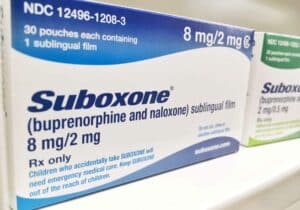Dilaudid, a powerful opioid painkiller, is used effectively for severe pain management but carries a high risk of addiction and misuse. As part of the opioid family, Dilaudid’s strong properties can lead to dependence and tolerance, meaning users may require higher doses to feel the same relief, which can spiral into addiction.
Is Dilaudid addictive? Yes, due to its potency and opioid nature, Dilaudid has a significant potential for addiction if not strictly used as prescribed. Regular use can quickly lead to physical dependence.
At Iris Wellness Group we specialize in addressing Dilaudid addiction in Chattanooga, TN with a holistic, individualized approach. If you or a loved one is struggling, call us at 423-919-9549 to discover how our tailored substance abuse treatments can assist in your recovery journey. Recovery starts with a single call.
What is Dilaudid?
Dilaudid, known scientifically as hydromorphone, is a prescription opioid used to manage moderate to severe pain from conditions such as cancer, fractures, and significant surgeries. As an opioid, it modifies how the brain perceives pain, offering relief. While effective for short-term use, Dilaudid carries a high risk of addiction and dependence if used improperly or for extended periods. It is crucial to use this medication only under the strict guidance of a licensed healthcare professional.
Is Dilaudid an Opiate?
Dilaudid belongs to the class of semisynthetic opiates, known as opioids. It is derived from morphine, not directly from opium, distinguishing it from pure opiates. Although initially developed as a safer alternative to pure opiates, semisynthetic opioids like Dilaudid are among the most frequently misused drugs, including others such as heroin and OxyContin. Understanding its composition helps clarify why Dilaudid must be used with caution.
Is Dilaudid a Narcotic?
Yes, hydromorphone, or Dilaudid, is a narcotic derived from morphine, widely used to alleviate severe post-surgical pain or manage chronic pain conditions. While it offers significant pain relief, its classification as a narcotic means it also has a high potential for misuse and abuse. Abuse of Dilaudid can occur when it is sold or used without a prescription, often leading to people using it to achieve a high rather than for pain relief. This underscores the need for careful prescription and monitoring by medical professionals.
Is Dilaudid Addictive?
Yes, Dilaudid is highly addictive. Like its opioid counterparts, Dilaudid works by binding to opioid receptors in the brain, not only alleviating pain but also triggering dopamine release, a neurotransmitter linked to pleasure and reward. This mechanism can foster a psychological dependency, compelling continued use of the drug beyond its medical necessity.
In the United States, Dilaudid is classified as a Schedule II controlled substance. This classification highlights its high potential for abuse and the serious risk it poses for causing physical and psychological dependence. Due to these risks, Dilaudid is heavily regulated and available only through a prescription from a licensed healthcare professional.
Dilaudid Abuse and Opioid Addiction
Opioids like Dilaudid act on the central nervous system, suppressing coughs, reducing pain sensations, and decreasing blood pressure, heart rate, and respiration. They induce calm and relaxation, and when misused, can lead to a euphoric high.
Globally, prescription opioids are among the most abused substances. According to the World Health Organization (WHO), approximately 15 million people worldwide struggle with opioid addiction. In the United States, data from the National Survey on Drug Use and Health (NSDUH) in 2014 suggested that around 4.3 million Americans aged 12 and older were current abusers of prescription painkillers, engaging in nonmedical use within the previous month.
Treating prescription drug addiction typically involves a combination of behavioral therapies and pharmacological interventions within specialized facilities. These programs provide education, stress management tools, medical detox to safely remove the drug from the body, and continuous support throughout the treatment and recovery process. Both residential and outpatient settings offer comprehensive services and treatment options that aid individuals in overcoming opioid addiction and maintaining long-term sobriety, equipped with relapse prevention, aftercare, and ongoing support mechanisms.
Signs and Symptoms of Dilaudid Addiction
Dilaudid addiction can manifest through a variety of signs and symptoms that may differ from person to person. Recognizing these signs is crucial for identifying a potential problem and seeking help.
Behavioral Symptoms:
- Apathy towards daily activities.
- Continuing to use Dilaudid despite negative consequences on health or relationships.
- Using Dilaudid under dangerous conditions.
- Neglecting responsibilities at work, school, or home due to usage.
- Spending excessive time obtaining, using, or recovering from Dilaudid.
- Repeated unsuccessful attempts to cut down or control use.
- Consuming Dilaudid in larger amounts or for longer periods than intended.
- Exhibiting slurred speech.
Physical Symptoms:
- Pinpoint pupils.
- Increased drowsiness.
- Withdrawal symptoms, such as agitation and physical discomfort, when stopping use.
- Developing tolerance, necessitating larger doses for the same effect.
Cognitive Symptoms:
- Diminished judgment.
- Lack of attention to tasks or surroundings.
- Memory challenges.
- Intense cravings for Dilaudid.
Psychosocial Symptoms:
- Periods of high euphoria.
- Persistent low mood or depression.
These signs are indicators that someone may be struggling with an addiction to Dilaudid, and they underscore the need for professional intervention and treatment to manage the addiction effectively.
How Dilaudid Addictions Begin
Dilaudid addiction commonly starts with a valid prescription for managing pain. The drug’s capacity to induce euphoria can tempt some individuals to misuse it by taking larger doses than prescribed, increasing the frequency of use, or consuming it in non-prescribed ways. Such misuse heightens the risk of addiction and can lead to severe health complications, including the possibility of a lethal overdose.
Addiction to Dilaudid is not indicative of a lack of willpower or moral shortcomings. The highly addictive properties of Dilaudid and the subsequent alterations it causes in brain chemistry make it extremely difficult to overcome dependency without expert intervention.
Effects of Dilaudid Abuse
Continued abuse of Dilaudid without seeking treatment can lead to a range of serious negative effects, both physically and socially. Individuals struggling with Dilaudid abuse may experience:
- Chronic dry mouth and nasal passages
- Constipation
- Reduced vision clarity
- Underperformance or failure in academic and professional settings, potentially leading to expulsion or job loss
- Deterioration of personal relationships and social withdrawal
- Emergence or intensification of mental health issues
- Increased risk of using multiple substances, leading to further addiction or chemical dependency
- Potential for birth defects if used during pregnancy
- Risk of injuries associated with drug-related violence
- Fatal outcomes, including overdose or suicide
These consequences underscore the critical need for timely intervention and treatment to prevent the devastating impacts of Dilaudid abuse on an individual’s health and life.
Dilaudid Withdrawal
Long-term abuse of Dilaudid can lead to physical dependence, where the body becomes accustomed to the drug’s presence. When an individual tries to stop or reduce usage, their body must adapt to functioning without it, initiating the withdrawal process. This adjustment can be uncomfortable and challenging, manifesting several symptoms including:
- Insomnia and disturbed sleep patterns
- High fever
- Diarrhea
- Frequent yawning
- Dilated pupils
- Excessive sweating
- Goosebumps, often described as “cold turkey”
- Runny nose and watery eyes
- Body aches
- Nausea and vomiting
- Depressed mood
These withdrawal symptoms underscore the severity of physical dependency on Dilaudid and highlight the need for professional guidance and treatment to manage the discontinuation safely and effectively.
Signs of a Dilaudid Overdose
In the United States, opioid overdoses, including those from Dilaudid, claim 44 lives daily, according to the CDC. As a potent opioid, Dilaudid can significantly suppress essential functions such as breathing and heart rate, leading to potentially fatal overdoses. The FDA highlights key symptoms of a Dilaudid overdose:
- Shallow or slow breathing
- Drowsiness or coma
- Weak muscle tone
- Cold, clammy skin
- Constricted pupils
- Low blood pressure and slow heart rate
Overdoses are more likely when Dilaudid is snorted, smoked, or injected, rapidly delivering the drug into the bloodstream and increasing overdose risks. Methods like injection can collapse the circulatory system, leading to cardiac arrest or apnea.
Immediate emergency care is crucial if an overdose is suspected. The Drug Abuse Warning Network noted nearly 20,000 ER visits in 2011 for hydromorphone misuse. Thankfully, medications like naloxone can reverse an opioid overdose if administered promptly.
Mixing Dilaudid with alcohol or benzodiazepines multiplies the danger, as these substances also depress central nervous functions, elevating overdose risks. Individuals recovering from Dilaudid addiction must be cautious as resuming use can lead to overdose due to reduced tolerance.
Effective treatment programs are vital for managing Dilaudid addiction, preventing relapse, and providing ongoing support for those in recovery.
The Risks of Mixing Dilaudid with Alcohol
Combining alcohol with prescription medications like Dilaudid can lead to serious health risks. Alcohol, a depressant, when taken with opioids such as Dilaudid, greatly increases the danger of adverse effects including potentially fatal overdoses.
The simultaneous use of these substances can severely depress the central nervous system, causing symptoms such as lightheadedness, drowsiness, dizziness, and significantly impaired judgment. This combination can also lead to dangerously low blood pressure, respiratory difficulties, fainting, and even coma. Both alcohol and Dilaudid impair cognitive functions, increasing the likelihood of accidental overdose due to reduced awareness of intake amounts.
Given the severe risks associated, it is crucial to avoid mixing Dilaudid with alcohol. If you or someone you know is struggling with combining these substances, seeking help is vital. Treatment centers like Iris Wellness Group provide comprehensive care, from medical detox to aftercare, supporting long-term recovery and a return to health.
Dilaudid Addiction Treatment Options
Treating Dilaudid addiction often uncovers underlying issues like anxiety disorders or simultaneous alcohol abuse. The treatment strategies are comprehensive, designed to address not only the addiction itself but also its root causes:
- Dual Diagnosis Treatment: Manages co-occurring mental health issues such as anxiety, depression, or bipolar disorder.
- Polysubstance Abuse Treatment: Provides support for those dealing with dependencies on multiple substances.
- Behavioral Therapies: Helps replace destructive behaviors with healthier coping strategies.
- Individual Therapy: Offers personalized guidance and support.
- Group Therapy: Facilitates a supportive environment through shared experiences.
- Family Therapy: Focuses on repairing communication and rebuilding trust within the family unit.
A well-rounded Dilaudid addiction treatment program allows you to progress at your pace, acknowledging that recovery journeys are unique to each individual. Depending on your specific needs, this might mean a brief detox period or a more extended stay in rehabilitation. For those transitioning back to day-to-day life, options like transitional living provide a supportive environment to ease this change. Recovery is deeply personal, and the pace should reflect your own path toward long-term sobriety and wellness.
Start Your Dilaudid Addiction Treatment in Chattanooga, TN at Iris Wellness Group
Taking the first step toward recovery from Dilaudid addiction is courageous. At Iris Wellness Group, we’re committed to supporting your journey every step of the way. Our customized outpatient programs in Chattanooga, TN, are crafted to provide the tools and support needed for effective recovery. We offer a supportive and private environment that fosters your growth and supports your sustained recovery. For more information on how we can help, please call us at 423-919-9549 or fill out our contact form.












